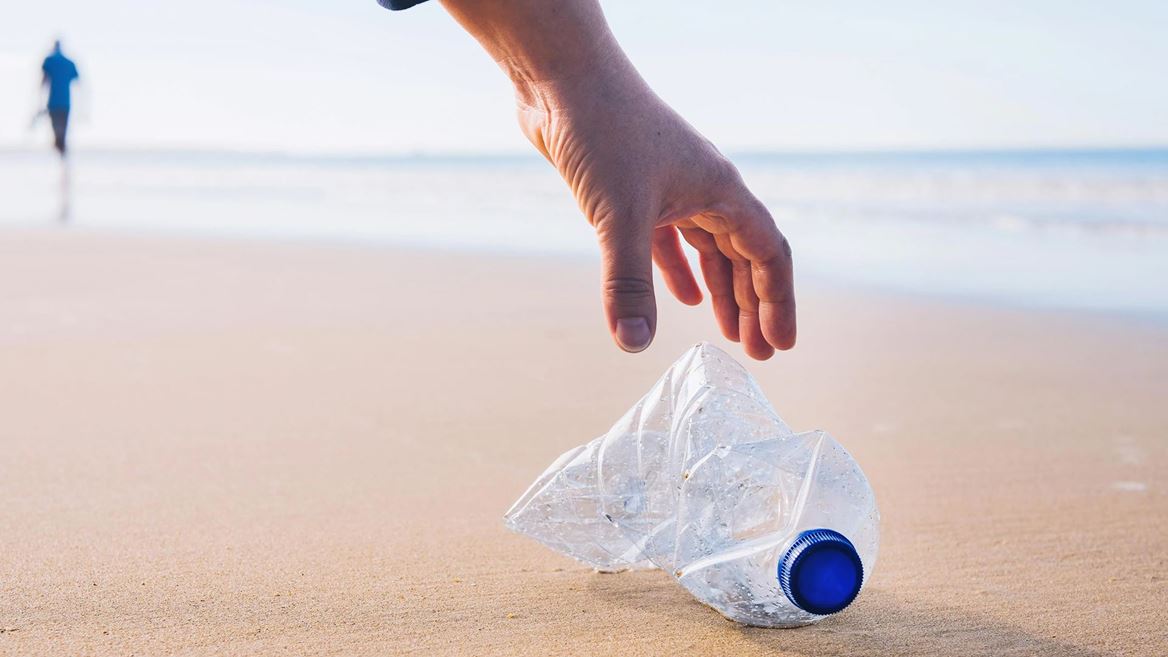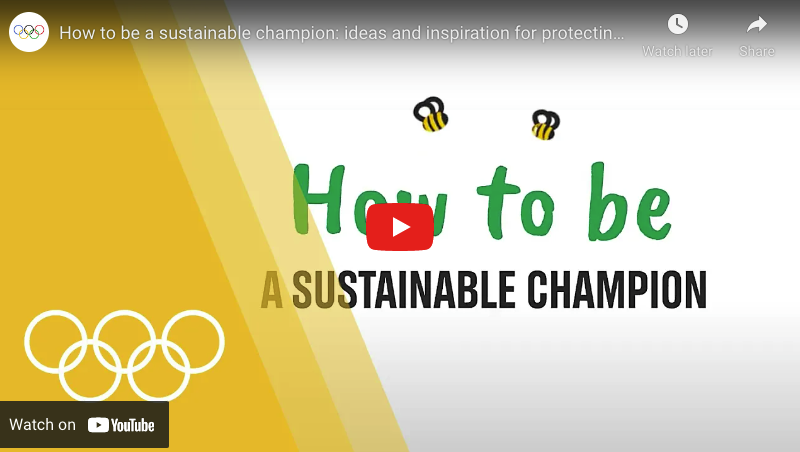How to be a sustainable champion: ideas and inspiration for protecting #onlyoneearth

07 Jun 2022 – On the occasion of World Environment Day, the IOC has published a new guide entitled “How to be a sustainable champion”, which includes a series of practical ideas to help athletes and sports fans live a “planet-friendlier and healthier life”.
Featuring the voices of athletes from around the world, the guide was produced as part of the IOC’s Athlete365 community, with support from the UN Environment Programme (UNEP). It identifies key environmental challenges that need urgent action, linked to climate, biodiversity, waste and pollution.
“With its universal appeal and visibility, sport has the power to help address some of today’s biggest challenges,” said Kaveh Mehrabi, Olympian and Director of the IOC’s Athletes’ Department. “In this guide, Olympians and athletes share their own experiences of tackling these challenges and call for other athletes and sports fans to also play their part.”

The guide offers practical tips on how to live more sustainable lives, ranging from ways to save energy and water in our daily lives through to making our societies more equal and inclusive.
“Today, every athlete and sports fan can see the impacts of climate change and other sustainability problems – from bleached coral in the ocean to plastic litter, air pollution and less snow on our mountain ranges,” we can read in the guide’s introduction. “Many of the sports we love rely on a clean and healthy environment – whether it’s playing football, basketball or rugby at our local playing fields, hiking, cycling and skiing in the mountains, or enjoying sailing, windsurfing and kayaking on the ocean. So how can we protect these places for our future?”
Aimed at the broader sports community, the guide features insights and advice from athletes from around the world who have engaged in sustainability initiatives.
“In order to keep my island clean, I have brought the community together to clean our beaches and recycle the plastic we collect into sport equipment,” said IOC Young Leader Alumni Valéry de Falbaire from Mauritius. “With my main sponsor, we have collected unwanted table tennis equipment throughout France and distributed it for reuse,” said Sarah Hanffou, a table tennis Olympian from Cameroon.
“Sport inspires and unites, reaching all corners of the globe. By coming together and using our voice to call for action, athletes and sports fans everywhere can help change the fate of our planet,” said Hannah Mills, British Olympic sailing champion and founder of the Big Plastic Pledge – an IOC-supported initiative that calls on athletes and fans to reduce the use of single-use plastic in their daily lives. “I set up the Big Plastic Pledge to help more of us take a small step to tackle plastic pollution – by making a change every day, we can change the world!”
Sustainability is central to the Olympic Movement’s vision of “building a better world through sport”. It is also at the centre of the IOC’s strategic roadmap, Olympic Agenda 2020+5. As part of its sustainability work, the IOC systematically embeds sustainability across its three spheres of responsibility: as an organisation, as the owner of the Olympic Games and as the leader of the Olympic Movement. It aims to ensure that the Olympic Games and the broader Olympic Movement are at the forefront of sustainability, while using the power of sport to help raise awareness about today’s sustainability challenges, and showcase solutions to address them.





